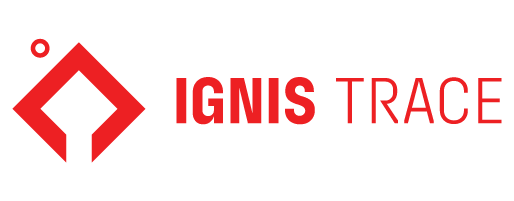- Home
- Heat Trace Services
- Industrial Heated Insulation Jackets
Industrial Heated Insulation Jackets
- Overview
- Pipes Freeze Protection
- Industrial Fire Safety Solutions
- Industrial Temperature Maintenance
- Snow & Ice Melting For Roofs And Gutters
- Tank and Silo Heating
- Ramp and Road Heating Systems
- Electric Under-Floor Heating
- Long Pipeline Heating
- Ex-Proof Electrical Equipment and Solutions
- Industrial Heated Insulation Jackets
- Fuel & Chemical Leak Detection Systems
- Heating Solutions For Open Sea And Arctic Shipping
- Tank Insulation
- Bunker Heating
- Industrial Immersion Heaters

In industrial facilities, controlling heat loss, ensuring equipment efficiency, and maintaining process stability are essential for operational success. This is where heated jackets play a crucial role. Unlike traditional insulation solutions, heated industrial insulation jackets combine insulation with integrated heating elements to maintain stable surface temperatures regardless of external conditions. These jackets not only reduce heat loss but also actively prevent freezing, ensuring continuous and efficient operation.
Designed for pipes, valves, tanks, and other critical components, industrial insulation jackets offer a flexible and removable insulation layer. With built-in heating systems, they actively maintain the desired temperature, especially in outdoor environments or during winter months. They provide an energy-efficient, cost-effective, and easily maintainable solution, especially when compared to permanent insulation methods. Ignis Trace specializes in designing and manufacturing industrial insulation jacket systems tailored to specific equipment and process needs, ensuring maximum thermal efficiency and long-term durability.
What are Heated Insulation Jackets?
Heated insulation jackets are advanced insulation systems designed for industrial equipment and piping systems requiring both insulation and temperature control. Unlike conventional insulation covers, these jackets feature integrated electric heating elements that provide continuous and adjustable heat to maintain a target temperature. This combination ensures both energy efficiency and process reliability, especially in temperature-sensitive operations.
These industrial insulation jackets are commonly used on pipelines, pumps, flanges, and tanks in industries such as chemical processing, pharmaceuticals, food production, and energy generation. Their removable and reusable design allows for easy installation, removal, and maintenance, making them ideal for systems requiring regular inspection. By combining insulation and active heating, heated jackets prevent condensation, protect equipment from freezing, and ensure optimal operating conditions even in extreme environments.
How Do Heated Insulation Jackets Work?

The working principle of heated insulation jackets involves the integration of electrical heating elements within the insulation layers. These elements distribute heat evenly across the surface, maintaining consistent temperatures along the equipment. Temperature sensors and thermostats continuously monitor the surface temperature, ensuring the heating elements operate only when necessary, thus optimizing energy consumption.
The industrial insulation jacket not only reduces passive heat loss but also actively compensates for thermal losses due to cold weather or process conditions. By keeping the equipment within the required temperature range, the heated jacket protects against freezing, thermal cycling, and process disruptions. With its flexible, removable design, maintenance teams can easily access equipment for inspection or repairs without damaging the insulation. This balance between insulation and active heating makes industrial insulation jackets particularly effective in temperature-sensitive industries.
Material Structure and Durability of Ignis Trace Thermal Insulation Jackets
The quality and durability of thermal insulation jacket solutions from Ignis Trace stem from carefully selected high-performance materials. Each jacket features a multi-layer construction designed for long-term performance in challenging industrial environments. The outer layer is made from materials like PTFE-coated glass fabric, silicone-coated textiles, or aluminum foil composites, all of which offer superior resistance to UV exposure, chemicals, and mechanical damage.
Inside, high-density insulation materials such as fiberglass, mineral wool, or aerogel provide excellent thermal performance with minimal bulk. Embedded within these layers, electric heating cables ensure even temperature distribution. These heating elements are carefully protected within the industrial insulation jacket to prevent mechanical damage during installation or maintenance. Ignis Trace's advanced design ensures that every thermal insulation jacket is customized to fit the exact shape and size of the equipment, ensuring superior insulation coverage and durability.
The Role of Heated Insulation Jackets in Industrial Processes
Frost Protection and Temperature Stabilization
In industrial environments where equipment is exposed to cold weather, heated jackets provide essential frost protection. By maintaining critical surface temperatures, they prevent freezing in pipes, valves, and tanks, which can otherwise lead to blockages, equipment damage, and costly production shutdowns. Heated industrial insulation jackets are especially valuable in outdoor facilities, ensuring operational continuity even in sub-zero temperatures.
Use in Fluid Carrying Installations
For pipelines and process lines carrying fluids, maintaining the correct temperature is essential to ensure product quality and process efficiency. Industrial insulation jackets help regulate surface temperatures, preventing viscosity changes or product solidification. In industries like chemicals or food processing, where product consistency is key, heated jackets are indispensable. Ignis Trace’s tailored solutions ensure that every industrial insulation jacket fits seamlessly around complex pipework and valves, ensuring complete coverage and effective thermal management.
Technical Specifications of Ignis Trace Heated Insulation Jackets
Ignis Trace’s heated jackets are engineered to meet the demanding conditions of industrial environments. Each jacket’s technical specifications are tailored to the application, including:
- Operating temperature ranges up to 250°C
- High-performance insulation materials for superior thermal efficiency
- Integrated electric heating elements with uniform heat distribution
- Smart temperature control via sensors and thermostats
- Durable outer fabrics with resistance to UV, moisture, and chemicals
- Removable and reusable modular design for easy maintenance
- Custom-fit designs for equipment like pumps, valves, and tanks
These industrial insulation jackets provide not only effective insulation but also precise temperature control, ensuring equipment performs reliably under all conditions.
Advantages of Heated Insulation Jackets
The benefits of heated industrial insulation jackets go far beyond standard insulation solutions. Some of the key advantages include:
- Dual protection: Combines insulation and active heating
- Reduced energy consumption by minimizing heat loss
- Prevention of freezing, condensation, and thermal cycling
- Extended equipment lifespan by reducing thermal stress
- Easy installation and removal for maintenance access
- Custom design for seamless equipment fit
- Increased process reliability and reduced downtime
- Enhanced safety in hazardous environments
By providing these benefits, Ignis Trace’s industrial insulation jacket solutions improve operational efficiency while reducing long-term maintenance and energy costs.
In Which Areas Are Thermal Insulation Jackets Used?
Thermal insulation jackets are widely used across industries where temperature control and energy efficiency are critical. These industries include:
- Chemical processing plants
- Pharmaceutical manufacturing
- Food and beverage production
- Power generation facilities
- Water treatment plants
- Oil and gas installations
Frost Protection and Temperature Stabilization
In outdoor installations, heated jackets offer reliable frost protection by maintaining equipment temperatures above freezing. This ensures uninterrupted operation even in severe weather, safeguarding equipment and process stability.
Use in Installations Carrying Fluid
For pipelines and systems transporting temperature-sensitive fluids, industrial insulation jackets help maintain the ideal process temperature. This prevents viscosity changes, solidification, and process disruptions, ensuring both product quality and operational efficiency.

 Türkçe
Türkçe